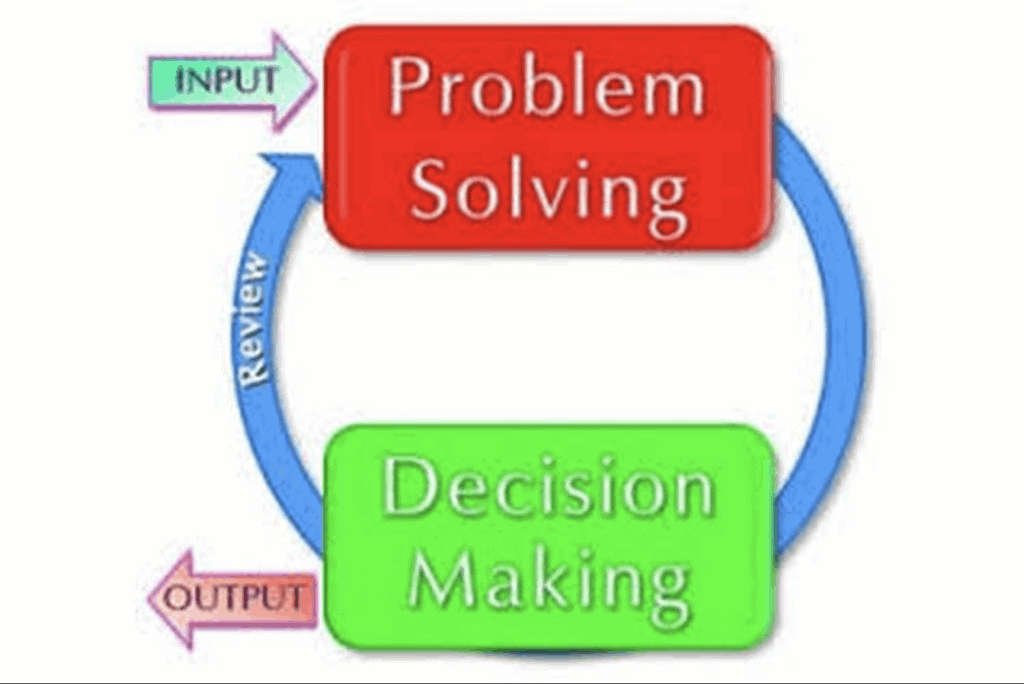Within today's fast-paced world, having the capability to make impactful decisions is of utmost importance than ever. Whether in personal life as well as the business realm, the decisions we make can profoundly impact our futures. However, as numerous individuals have experienced, decision-making can frequently become stalled by indecision, overwhelmed by options, or obscured by feelings. Understanding the skill of smart decision-making is essential for anyone looking to optimize outcomes and handle both simple choices and challenging scenarios with assurance.
In this piece, we will delve into various techniques aimed at enhance your decision-making skills. Starting with mastering frameworks that streamline the decision-making process to comprehending the psychology behind effective decisions, we will explore strategies that enable you to make better choices. Here, you will discover how to analyze options efficiently, overcome decision fatigue, and even utilize your intuition when appropriate. By the end, you will be equipped with essential tools to assist you in navigate critical moments with clarity of thought and composure, ensuring that turn tough calls into successful outcomes.
Methods for Optimal Decision-Making
One of the crucial methods for effective decision-making is leveraging decision making structures. These approaches provide structured methods to examine options systematically. Well-known structures include the SWOT framework, which analyzes strengths and weaknesses, weaknesses, challenges, and risks, and the decision matrix, which helps evaluate various alternatives based on particular standards. By utilizing these resources, individuals can clarify their priorities and simplify the decision making procedure, consequently leading to superior decisions.
Another important technique is developing mindfulness. Mindful awareness urges individuals to remain in the moment and focused, lessening the noise of external pressures and emotional noise that often hinder decision-making. Regular awareness exercises can enhance clarity of thought and encourage a serene mindset, allowing for more considered decisions. This clarity of thought is especially important in high-pressure situations, where the ability to stay calm can dramatically affect the quality of decisions taken.
Finally, nurturing emotional awareness plays a vital role in decision making. Recognizing one’s own emotional state and acknowledging the feelings of others can help integrate intuition and rationality. High emotional awareness allows for greater management of stress and anxiety, which can often result in anxiety about making the poor judgment. By incorporating self-awareness into the decision making process, individuals can tackle circumstances with more confidence, creating a more balanced and thoughtful decision-making setting.
The Psychology and Emotional Factors of Decisions
Grasping the psychological aspects behind decision-making is vital for enhancing outcomes. Our decisions are often influenced by biases in thought and emotions, which can sometimes enhance or impede our ability to craft successful decisions. For instance, the bias of anchoring can cause us to rely too heavily on initial information, while bias for confirmation may cause us to ignore evidence that go against our pre-existing beliefs. Acknowledging these biases allows us to handle decisions with a sharper view and reduce the potential traps associated with flawed reasoning.
Feelings play a critical role in how we decide. While gut feeling can be a strong influence, strong emotions can cloud judgment and result in impulsive decisions. It is essential to develop emotional intelligence, which entails comprehending our own feelings and those of people around us. By effectively handling feelings effectively, we can build an atmosphere where rational decision-making prospers. This balance guarantees that we consider both reasoned thinking and emotional understanding into consideration when evaluating options.
Furthermore, grasping the interplay between psychological factors and emotion can help us create tactics to tackle decision fatigue. When confronted by many choices, our cognitive clarity tends to diminish, leading to procrastination or poor decisions. Adopting practices such as being present can enhance awareness and attention, allowing us to navigate the processes of decision-making with greater clarity. By recognizing the impact of both psychological factors and feeling states, we can cultivate a more structured approach to improving decision-making over time.
Tactical Frameworks for Sound Decisions
Successful choices often relies on systematic frameworks that steer individuals through the complexities of their choices. One such model is the DECISION, which stands for Identify the issue, Establish standards, Consider the possibilities, Choose the optimal solution, Create a course of action of action, and Assess the outcome. https://articlescad.com/this-mental-processes-of-efficient-choice-making-108375.html helps in dividing the decision making process into manageable elements, ensuring that all aspects are considered before arriving at a choice.
A different robust strategy is the Strengths-Weaknesses-Opportunities-Threats analysis, which examines the Strengths, Weaknesses, Chances, and Risks related to a choice. By evaluating internal and external factors, individuals can obtain a clearer understanding of their status and the possible effects of their options. This method encourages a broad view that supports well-thought-out decisions, especially in ambiguous situations where evaluating risks is crucial.
Employing decision frameworks can also assist in selecting between various options. This instrument allows for the review of different choices against a set of metrics, providing a visual representation of choices and trade-offs. By quantifying the advantages and drawbacks of each choice, decision-makers can tackle their choices with increased understanding and confidence, finally resulting in more successful conclusions.

